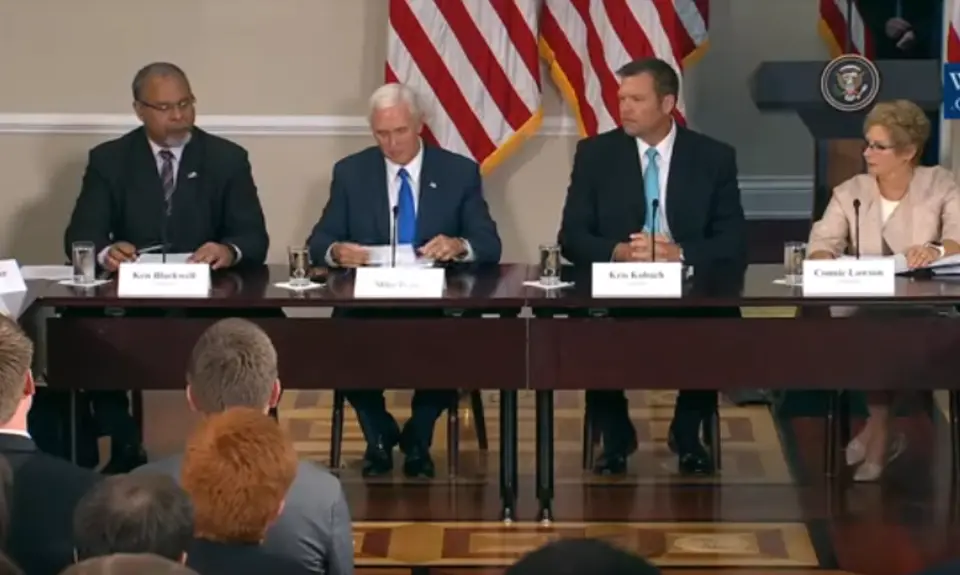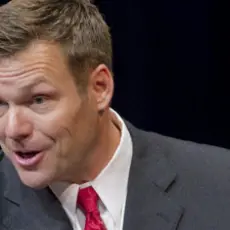Earlier today, the Presidential Advisory Commission on Election Integrity, which President Trump set up after baselessly claiming that millions of people voted illegally for Hillary Clinton in 2016, had its first meeting. Commission chairman Vice President Mike Pence left after opening remarks, after which the meeting was dominated by Kansas Republican Secretary of State Kris Kobach, a leading architect of voter suppression policies and the commission’s vice chairman. The meeting also included an appearance from Trump himself, who set the stage by floating vague claims about things he said people had told him about widespread voter fraud during his presidential campaign.
“This issue is very important to me because throughout the campaign, and even after, people would come up to me and express their concerns about voter inconsistencies and irregularities which they saw, in some cases having to do with very large numbers of people in certain states,” he said.
“This is not a Democrat or a Republican issue, it’s an American issue. It’s about the concern of so many Americans that improper voting is taking place and cancelling out the votes of lawful American citizens,” he added, an allusion to the myth of widespread noncitizen voting.
Trump attacked the states that are refusing to provide the full range of voter data that the commission is requesting, saying “one has to wonder what they’re worried about."
Kobach, one of the primary drivers of fears about widespread voter fraud, similarly argued that the commission was necessary because "many Americans" are worried about fraud—in his words, “for a long time, there’s been lingering doubt among many Americans about the integrity and fairness of our elections." He cited a seriously flawed study to claim that there could be 18,000 noncitizens on the voter rolls in Kansas. Incidentally, 18,000 is the number of Kansas voters who were at one point barred from registering to vote because of a stringent voter ID law that Kobach helped to push through.
Kobach suggested that the committee cover the accuracy of voter rolls, “fraudulent or improper voting,” voting by mail, and “voter intimidation,” along with the “potential” topic of cybersecurity. At one point, several commissioners discussed compiling a list of local elections that had been won by narrow margins, presumably in order to use them as talking points in stirring up fears of voter fraud. There was also discussion of Kobach’s Crosscheck program, which purports to find voters who are registered in or have voted in more than one state, but has been found to be riddled with false matches.
As ThinkProgress noted, only one commission member mentioned alleged Russian interference in the election. Voter suppression was also given short shrift: commission member Ken Blackwell suggested that while ensuring citizens are able to vote is important, the “right to an undiluted vote” without the threat of fraud is an equal concern. Kobach likewise compared the panel’s work to that of those concerned with long lines at the polls, saying that both long lines and the specter of fraud deter people from casting votes.
In case there was any doubt about the panel’s intentions, after the meeting, Kobach told MSNBC that “we may never know” whether Clinton indeed won the popular vote in last year’s election:
.@KatyTurNBC: 'You think that maybe Hillary Clinton did not win the popular vote?"Kobach: 'We may never know' https://t.co/FC26JcqrRD
— MSNBC (@MSNBC) July 19, 2017







